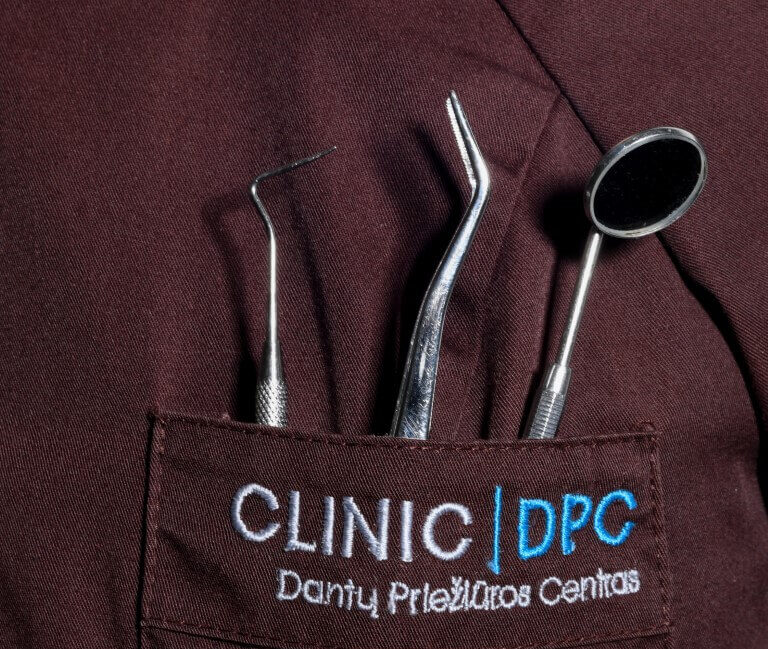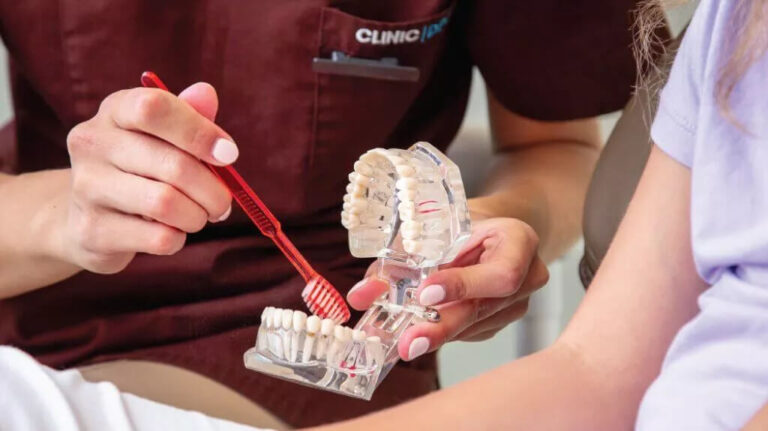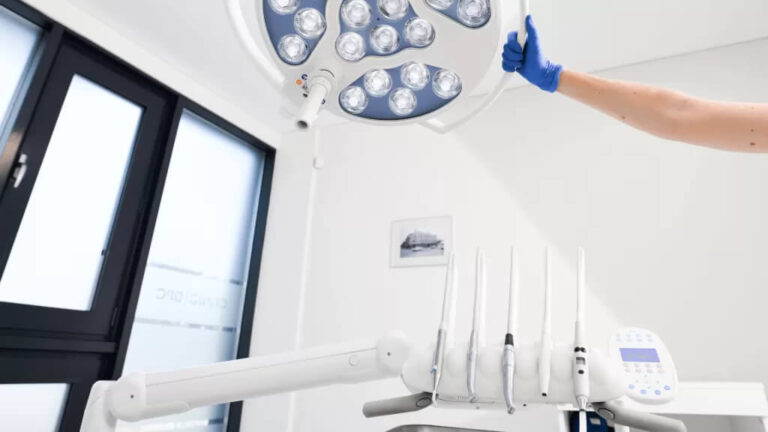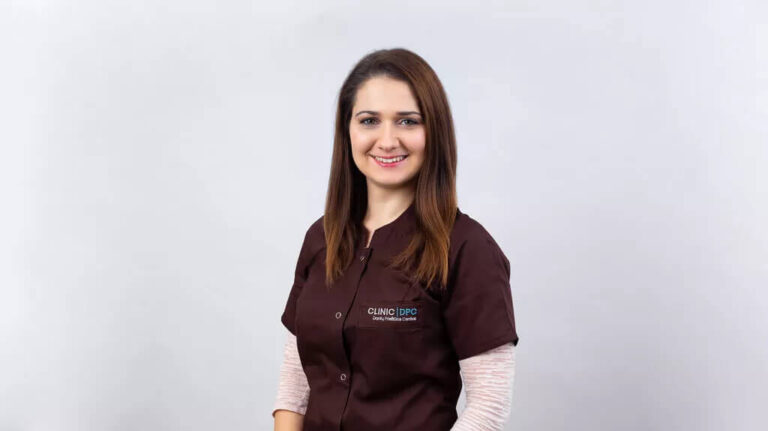Often, people only remember to take care of their health when it’s too late. Sometimes it’s because of fear, sometimes it’s because of the frantic pace of life. In addition, various stories, often surrounded by unsubstantiated myths, also have a significant impact on a person’s excitement when visiting the dentist. However, delayed treatment can only lead to more trouble, both in terms of health problems and financial costs, which could have been avoided by starting treatment on time and taking regular care of one’s dental health.
CLINIC | DPC dental clinics very often have patients who come to the clinic and discover that they need full mouth reconstruction. After CT scans and other examinations, a seemingly average situation turns out to be very poor and the person’s mouth no longer contains teeth suitable for prosthetic treatment.
Recently, the clinic had a patient who came in saying that he wanted “just a little tooth filling”, and after tests, the decision was made to restore the function of the whole mouth. When the patient started to ask more questions, he started to complain about the sensitivity of his teeth, he was not happy with the aesthetic appearance and he could not chew fully. This was due to heredity and natural wear and tear. A large part of his teeth were restored with metal-free ceramic constructions, including veneers and overlays placed on existing teeth, in an effort to preserve them as much as possible. The aesthetic appearance in this case was stunning and the patient quickly forgot his previous dental problems.
An inspiring example
Earlier, a middle-aged patient with oncological health problems visited the CLINIC | DPC clinic complaining of very badly deteriorated teeth after chemotherapy treatments: they were softened and some were missing altogether. After overcoming an insidious disease, the patient started to look into the possibility of restoring his teeth. Another clinic had offered him the only possible solution: a simple filling, but when he came to us, he complained that he was tired of having the same teeth filled and that this method was not reliable. He wanted a complete change. At the clinic, implants were placed where teeth were missing, and the doctors restored the other decayed teeth using veneers and metal-free ceramic constructions. When the new look of his teeth started to emerge, the patient wanted more, so the shape and color of the teeth that he was not happy with were slightly changed. The patient was glowing and was a very inspiring example to all the doctors who worked with him of how even the most difficult diagnosis does not crush a person, and how they can be so successfully “reborn” for a new life.
Simple advice can help
Often, people’s misconceptions and fears about dentistry lead to many problems that could have been avoided without self-treatment and timely referral to a specialist. Often the simplest advice from a specialist on how to take proper care of teeth and hygiene can help people to get rid of unjustified attitudes about the suffering that can await them when they have a toothache.
The biggest problem observed by CLINIC | DPC doctors is people’s tendency to self-medicate. There have even been cases where individuals decided to perform tooth extraction on their own. For instance, a patient visited the clinic last year who had attempted to extract a loose tooth himself. Unfortunately, he left behind a tooth root, which soon became infected and led to an abscess. This condition required the patient to seek help at the clinic to resolve the issue. The problem with incomplete tooth extraction is that it can lead to blood infections, abscesses, and infections that could potentially spread to the brain or heart, leading to sudden death. Self-medication can indeed have extremely dangerous consequences for one’s health, which can easily be avoided by promptly consulting a specialist.
Patients should listen to their doctors and pay attention to the recommendations they are given, for example, avoiding strenuous exercise after a tooth extraction. There are some people who do not listen to this instruction and after the tooth extraction procedure go to competitions, move around a lot, which raises blood pressure and causes the wound to bleed. Exercise causes a person to drink a lot of water, which can wash out the clot. Finally, if the person does not seek medical attention in time, he or she may start to feel pain in the affected area and develop headaches.
Another mistake some patients make is not caring enough about their teeth. There are patients who do not brush their teeth every day without seeing the need to do so. But in general, attitudes towards oral hygiene are starting to change and more and more people are starting to take better care of their teeth. More and more patients are coming to the clinics with regular oral hygiene. It is recommended to have it 1-2 times a year. If there is a tendency for tartar to build up on the teeth, then it should be done every 6 months, and if there is no tendency for tartar to build up, then it should be done every year.
Unjustified fear – a serious obstacle to a genuine smile
There are many myths and fears surrounding dental treatment. Some are frightened by the sound of drilling, others by dental equipment. These fears are often formed in childhood, but it should not be forgotten that dentistry is a very advanced field that is constantly improving and developing in order to minimize discomfort, to ensure that the treatment does not take too long and that the results are lasting. Dental treatment is feared by many people, but for some it is just a slight excitement that disappears shortly after treatment begins, while for others it is a great fear that keeps them awake the night before the dental appointment.
CLINIC | DPC has been visited by a young patient who was very afraid of doctors. When he was taken for a panoramic picture, the doctors at the clinic noticed that the young man’s face was slowly turning pale and he was becoming weak. After the patient had recovered, they spent a few minutes discussing with him what was causing his fear, and the specialists created a comfortable atmosphere. After a calm discussion, the patient asked for sedation, during which he was asleep and unconscious, while he was undergoing an implant procedure. The patient woke up happy after the surgery. When he arrived for the second removal of the sutures, the doctors were worried that the patient would be very sensitive, but he was completely changed, smiling and his fear had disappeared.
As mentioned, many fears are formed in early childhood. In the past, there was not as much focus on dental care education in preschools or schools. There were instances where baby teeth were neglected because of the myth that they would fall out anyway and that there would be no issues if they weren’t properly cared for. It is encouraging that such unfounded ideas are now being eliminated from practice. Society is now much more educated on hygiene issues, and young parents are adhering more to children’s dental care requirements. Public information is continuously provided, children are taught about dental care in preschools, and dentists visit to educate them on maintaining their teeth. Additionally, there is a growing trend among young people to have straight, white teeth.
Fear is a very natural feeling, often stemming from ignorance or from myths we hear in our environment. The best way to overcome your fears is to confront them by visiting your dentist and telling him or her what is worrying you. A dentist will never try to give a patient unnecessary pain, so direct communication and talking things through can help both the doctor and the patient to assess the situation properly and bring a smile back to their face.





